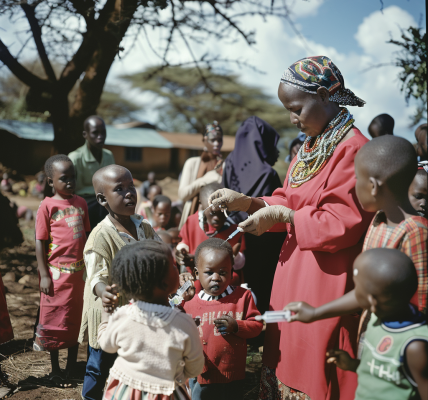Recent research highlights the critical role of early vaccination against respiratory syncytial virus (RSV) during pregnancy, suggesting that administering the vaccine closer to 32 weeks gestation may offer optimal protection for newborns. This study, led by experts at Mass General Brigham, provides new insights into the timing of RSV vaccination and its implications for maternal and infant health.
Current guidelines recommend that pregnant individuals receive the RSV vaccine between 32 and 36 weeks of pregnancy. RSV is known for typically causing mild, cold-like symptoms in adults but can be particularly dangerous for infants, being the leading cause of hospitalization among U.S. infants. The research, published in the American Journal of Obstetrics & Gynecology, aimed to clarify whether vaccination timing within the recommended window could impact the efficacy of maternal antibody transfer to newborns.
Dr. Andrea Edlow, a maternal-fetal medicine specialist at Massachusetts General Hospital, served as the senior author of the study. Edlow’s previous research on the timing of COVID-19 mRNA vaccinations during pregnancy revealed that the timing of maternal vaccination could significantly affect the transfer of antibodies to the fetus. Building on this knowledge, the team sought to investigate whether the timing of RSV vaccination would yield similar effects.
The study involved measuring RSV antibody levels in the umbilical cords of 124 women who received the vaccine during the late stages of their pregnancy. Additionally, the research included blood samples from 29 two-month-old infants born to these mothers. The study participants received care at either Massachusetts General Hospital or Mount Sinai Health System in New York City. The findings indicated that maternal vaccination at least five weeks before delivery resulted in the most effective transfer of maternal RSV antibodies to the newborns.
In their analysis, the researchers compared the RSV antibody levels in maternal and cord blood following vaccination with those in 20 unvaccinated mothers. The results showed that vaccinated mothers had significantly higher levels of RSV antibodies, underscoring the importance of timely vaccination during pregnancy.
This research underscores the need for further discussions on the timing of RSV vaccination in pregnant individuals. With the potential to significantly reduce the risk of severe RSV infection in newborns, early vaccination could be a key strategy in protecting vulnerable infants.
As the medical community continues to explore the implications of maternal vaccination on infant health, these findings may influence future guidelines and recommendations regarding RSV vaccination during pregnancy. The study’s conclusions advocate for a shift towards earlier vaccination, potentially reshaping the standard care practices for expectant mothers.
Healthcare providers and expectant parents should stay informed about the evolving recommendations surrounding RSV vaccination. With the ongoing research and emerging evidence, the goal remains clear: to enhance the protection of newborns against RSV and improve overall maternal and infant health outcomes.





